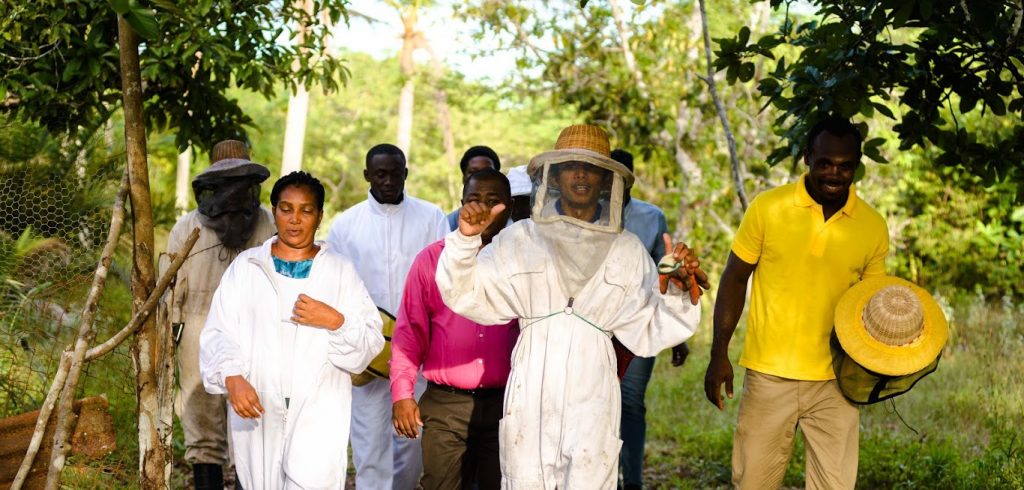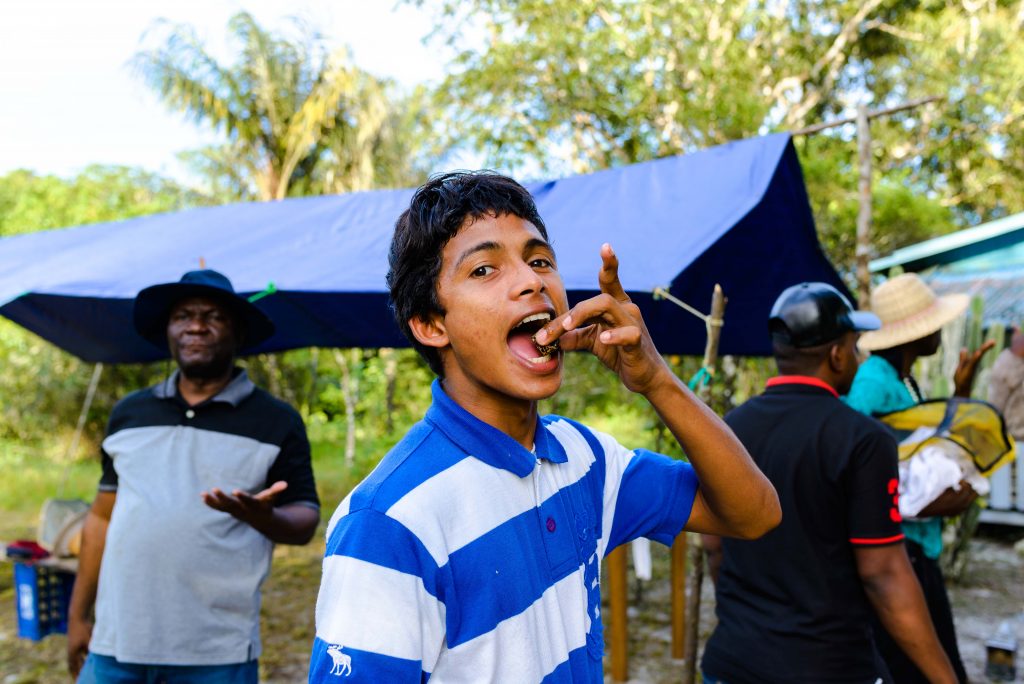Guyana pursuing increased honey production
Twenty-five new bee-keepers have joined the local agriculture industry as the Government with help from the Caribbean Development Bank (CDB), moves to add honey to its list of produce and reduce imports.
The CDB wrapped up training of the youths and women at the end of 2017.
In a statement from the CDB, it was noted that the production of honey on a larger scale could help the Government attain its development goals and provide a sustainable pathway out of poverty for Guyanese.
The CDB outlined that while Guyana’s apicultural industry is currently producing 11,300 gallons of honey annually, demand is greater than supply and Guyana imports over 4,000 gallons from markets such as Jamaica and the United States each year to make up the shortfall.
Imported honey is expensive, retailing at almost USD1.00 more than locally produced bottles, the CDB pointed out.
One of the participants of the training shared her thoughts.

Sharon Butts, an unemployed, stay-at-home mother, was quoted as saying in the statement: “I’ve always wanted to pursue an avenue that can help to supplement my family income, but was constrained by the lack of jobs in the area, having children to look after, and not having a skill I can utilise at home to earn.”
As such, she is said to be pursuing the establishment of a small apiary and work with training others.
Some technical and marketing skills required for managing an apiary, and taught during the sessions included: fundamentals of starting an apiary, types of beehives, conditions under which honey bee colonies thrive, harvesting techniques, and packaging and labelling techniques.

In the statement, Eusi Evelyn, Caribbean Technological Consultancy Services (CTCS) Network Project Liaison Officer, said agriculture and natural resources remain significant sources of economic activity. She added that the production of honey also adheres to Guyana’s Low Carbon Development Strategy, which promotes the vision of producing economic development while addressing climate change.
The project aligns with CDB’s commitment to enhancing the managerial, technical and operational capacity of micro, small and medium-sized enterprises (MSMEs) in the Bank’s Borrowing Member Countries.
MSME Coordinator at CDB, Lisa Harding was quoted as saying “the technical assistance support CTCS provided is particularly worthwhile, given that beekeeping can be undertaken by the landless, requires limited infrastructure, and is an attractive venture for unemployed people.” She added that there is also great nutritional value in beehive products and the potential for sustaining biodiversity.

CTCS facilitates the transfer of knowledge and skills within the private sector by linking people who have a business and technical experience with businesses that need consulting advice and assistance.






